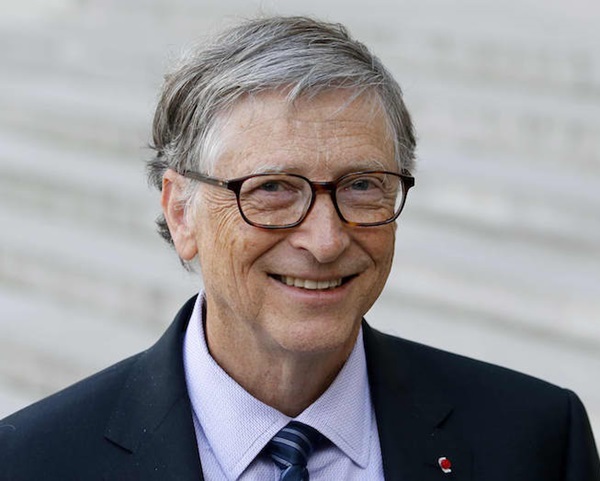
Billionaire philanthropist and chair of the Gates Foundation, Bill Gates has reaffirmed his long-term commitment to Africa, announcing that most of his $200 billion pledge will be invested in the continent over the next 20 years.
This was disclosed in a statement released by the foundation.
Gates said the funding would focus on key areas including primary healthcare, the application of artificial intelligence (AI) in health systems and youth-led innovation.
Speaking at the African Union headquarters in Addis Ababa, Gates addressed over 12,000 stakeholders – including heads of state, development partners, scientists, health workers and youth leaders – urging African governments to accelerate health and development through innovation and collaboration.
“I recently committed that my wealth will be given away over the next 20 years. The majority of that funding will be spent on helping you address challenges here in Africa,” Gates stated.
He emphasised that working alongside governments that prioritise the well-being of their citizens would be critical to achieving sustainable impact. He commended countries such as Nigeria, Rwanda, Ethiopia and Zambia for their leadership in transforming healthcare delivery, using data to reduce child mortality and leveraging innovation to combat infectious diseases.
As part of his visit, Gates will travel to Nigeria and Ethiopia, where he is expected to meet with President Bola Tinubu and Prime Minister Abiy Ahmed.
In Nigeria, he plans to attend the Goalkeepers Nigeria event, which will spotlight local innovations in AI and efforts to strengthen primary healthcare systems.
Gates highlighted the success of AI-enabled tools such as ultrasound screening in Rwanda to detect high-risk pregnancies, calling it a “glimpse into Africa’s promising healthcare future.” He urged African nations to integrate AI into the design of next-generation health systems, drawing a parallel to how mobile banking revolutionised the continent’s financial landscape.
The event featured remarks from global leaders including the director-general of the World Trade Organisation, Dr Ngozi Okonjo-Iweala and the UN deputy secretary-general, Amina Mohammed. Both praised African governments for demonstrating resilience and leadership in improving public health outcomes.
Renowned advocate for women and children, Graça Machel, described Gates’ continued investment as a “beacon of hope” amid global uncertainty.
“We are counting on Mr Gates’ steadfast commitment to continue walking this path of transformation alongside us,” she said.
Gates also underscored the importance of primary healthcare, stressing that proper nutrition before and during pregnancy, along with care in a child’s early years, forms the foundation of lasting health.
“With primary healthcare, we have learned that helping the mother be healthy and well-nourished before and during pregnancy delivers the strongest results,” he said.
Over the past two decades, Gates noted, the Foundation has worked with African partners to develop vaccines, strengthen health systems, and fight diseases such as malaria and HIV.
“It has also helped catalyse more than 100 innovations and supported programmes that have saved over 80 million lives through platforms such as Gavi and the Global Fund,” he added.
Gates’ visit follows the foundation’s announcement in May of its intent to wind down operations in 20 years, committing its full endowment to three goals: ending preventable maternal and child deaths, combating infectious diseases, and lifting people out of poverty.
“I have always been inspired by the hard work of Africans, even in places with very limited resources. The kind of fieldwork to get solutions out, even in the most rural areas, has been incredible,” Gates reflected.
With offices now established in Nigeria, Senegal, South Africa, and Kenya, the foundation says it is deepening its footprint in Africa to strengthen long-term partnerships and drive locally led change.

